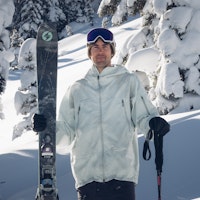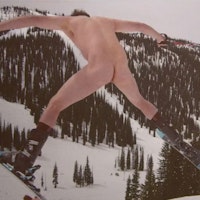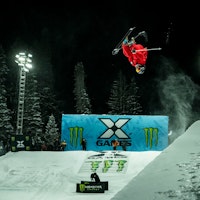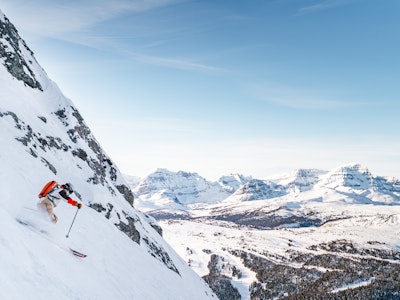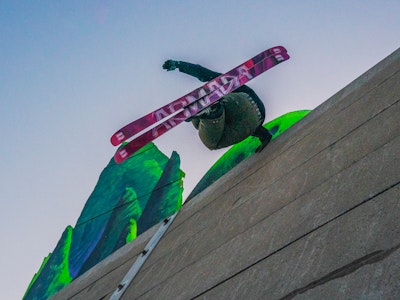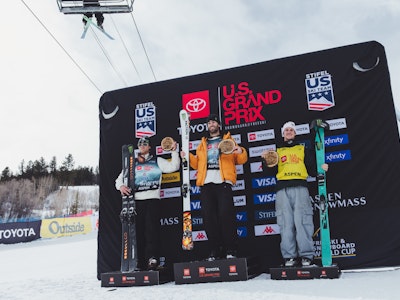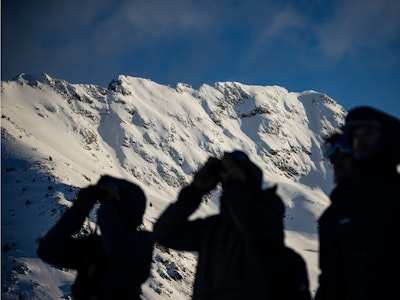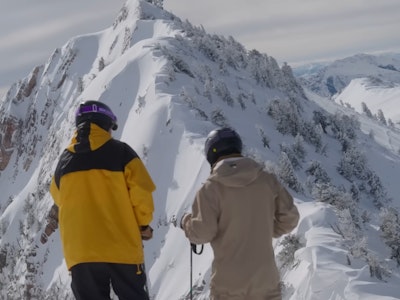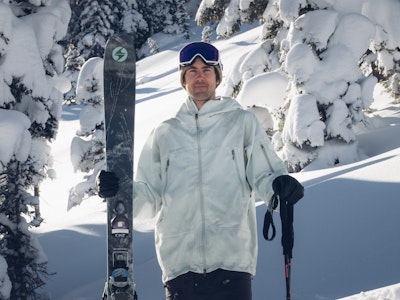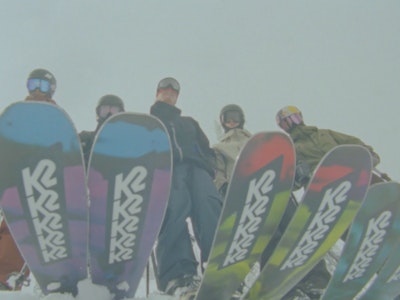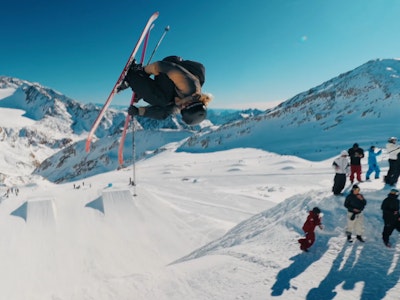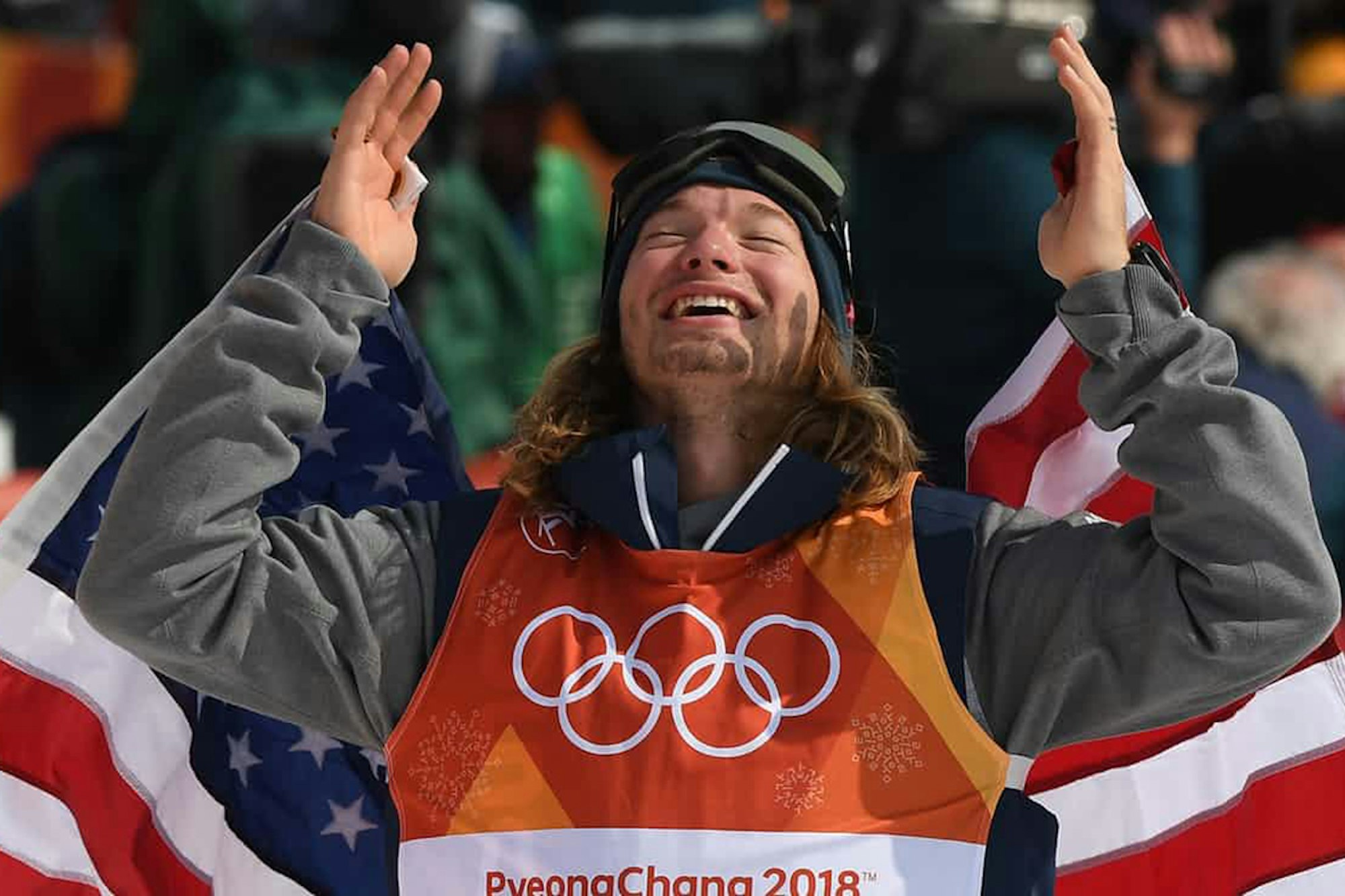Header image: David Ramos/Getty Images
Hey, do you dig the U.S. Freeskiing Team’s uniforms, crafted by The North Face and inspired by NASA’s Apollo program? Read all about how the outfits came to life, here.
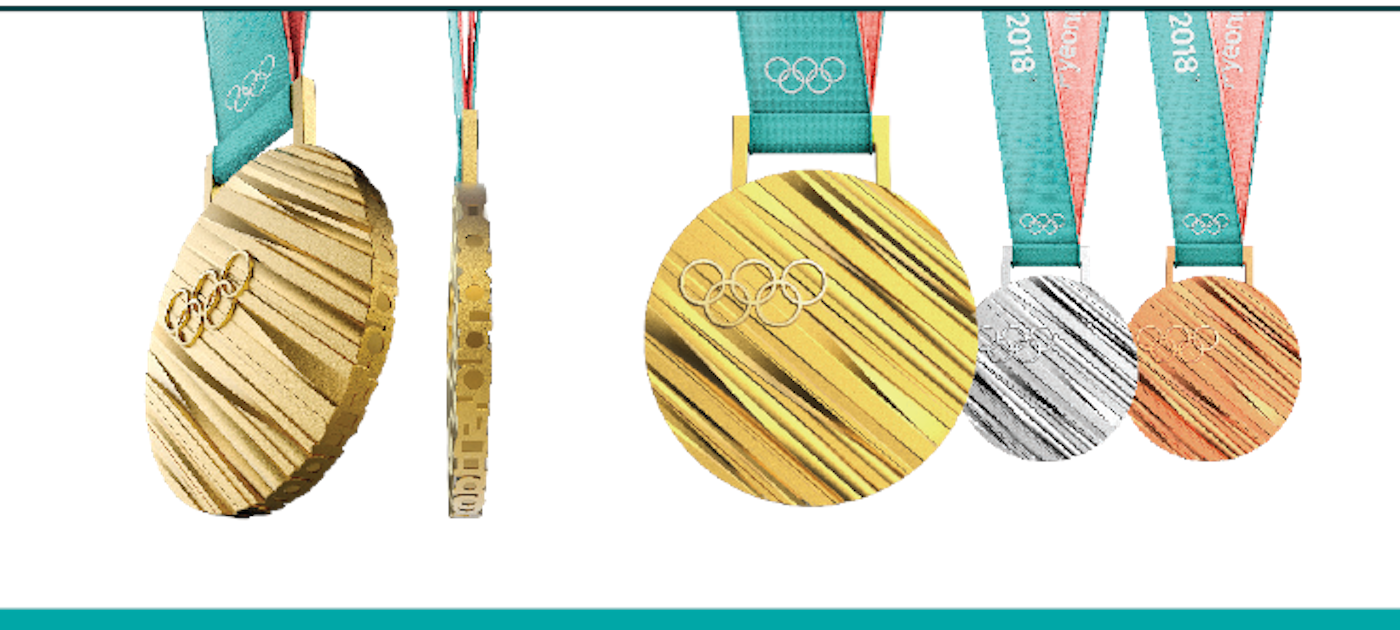
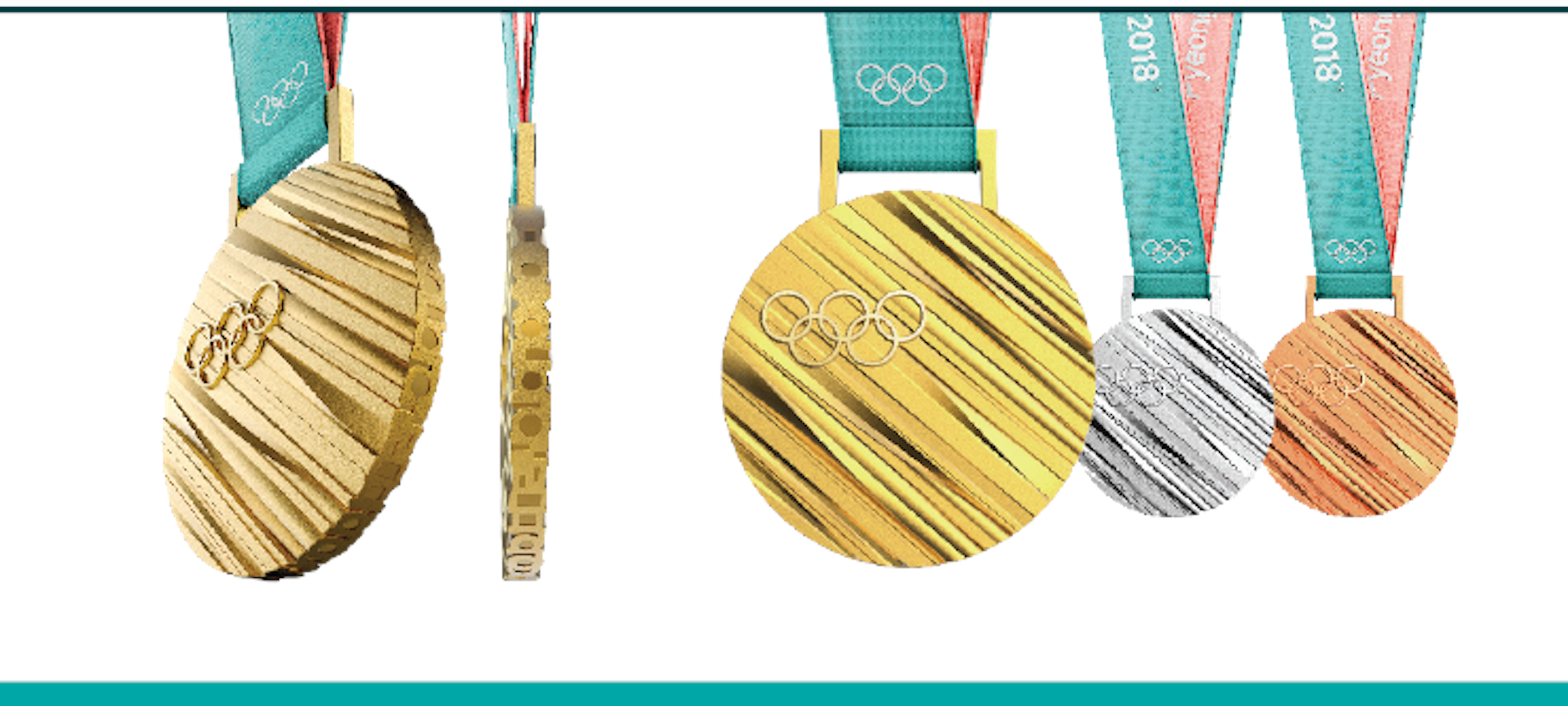
In what was a barnburner of a men’s halfpipe final, the United States’ David Wise defended his 2014 Sochi gold medal with a score of 97.20. The Nevada native fell on both of his first two runs, but his ability to perform under intense pressure helped him stomp his third run, which placed him atop the halfpipe world. Aspen, Colorado’s Alex Ferreira made his hometown proud, scoring a 96.40 on his final run to take home silver, while New Zealand’s Nico Porteus took home the surprise bronze medal, knocking off contenders like the USA’s Aaron Blunck and Torin Yater-Wallace, Canada’s Mike Riddle and Noah Bowman, as well as New Zealand’s Beau-James Wells.
2018 Olympic Winter Games, ski slopestyle results:
The skiing community weighs in
Helluva contest tho- congrats and props @mrDavidWise @Alex_Ferreira3 ????????????????????????????????????????????????
— Level 1 (@Level1) February 22, 2018
Awesome runs for both. Love seeing Aspen Ski And Snowboard Club athlete @Alex_Ferreira3 getting his first Olympic medal. https://t.co/0h06vVpERd
— chris davenport (@SteepSkiing) February 22, 2018
That pipe final was MENTAL!! @nicoporteous @mrDavidWise and ferreira, wow…
— Evan McEachran (@EvanMcEachran) February 22, 2018
When Jonny Mosley asks you to sign his helmet after you win Olympic silver @Alex_Ferreira3 “thank God you got that documented” Alex tells photogs pic.twitter.com/jddrlQueuE
— Jason Blevins (@jasonblevins) February 22, 2018
When @mrDavidWise sees his wife and kids after defending his gold medal. ???? pic.twitter.com/aHBV9FGo3d
— U.S. Ski & Snowboard Team (@usskiteam) February 22, 2018
extra 5 points for landing run after crashing twice
— nabbott across america (@nabbott) February 22, 2018


Who are the freeskiers to watch for in PyeongChang? Click on the banner above to view FREESKIER’s list of 2018 Olympic contenders.
2018 Olympic Winter Games fun facts
The XXIII Olympic Winter Games will be held for 17 days from February 9-25, 2018, in PyeongChang, Gangwon Province, the Republic of Korea. This marks the first time the Olympics have been staged in Korea since the Summer Games were hosted in Seoul, in 1988. Japan is the only other Asian country to have hosted the Olympic Winter Games in both 1972 (Sapporo) and 1998 (Nagano).
More than 2,800 athletes from 95 nations are expected to participate in 7 sports, and 15 sport disciplines, between 102 medal events—the most ever contested at an Olympic Winter Games to date. Yup, this will be the first ever Olympic Winter Games to hand out over 100 gold medals! A total of 6 new events—such as snowboard big air (men, women), speed skating mass start (men, women), curling mixed doubles and an alpine skiing team event—have been added to the program.
The 2018 PyeongChang Winter Games will be contested across 12 competition venues spread between 2 clusters: a coastal cluster of arenas for skating and curling and a mountain cluster for skiing and sliding.
The Paralympic Games will run March 9-18, 2018. More than 670 athletes representing 45 nations are expected to compete in a total of 6 sports and a total of 80 events.
Lee Suk-Woo is the designer of the medals for the 2018 Olympic Winter Games. He incorporated Hangeul (the Korean alphabet and the foundation of Korean culture) into the design of the medals by using a series of three-dimensional consonants. The ribbons attached to the medals are made from Gapsa, a traditional Korean fabric. Each gold medal weighs 586 grams (1.29 pounds); silver medals weigh 580 grams (1.28 pounds); and bronze medals clock in at 493 grams (1.09 pounds), making them the heaviest Olympic medals in history.
2018 Olympic freeskiing contest & TV schedule
Note: Korea Standard Time is 16 hours ahead of Mountain Time; where an event may be listed as taking place on February 16, keep in mind, it may in fact be taking place on February 17 across the pond. OK, dive in!
Monday, February 19, 2018:
Women’s freeski halfpipe finals ???? — 6:00 p.m. MT (NBC primetime coverage; nbcolympics.com)
Men’s freeski halfpipe qualifying — 9:00 p.m. MT (NBC primetime coverage; nbcolympics.com)
Tuesday, February 21, 2018:
Men’s freeski halfpipe finals ???? — 7:30 p.m. MT (NBC primetime coverage; nbcolympics.com)
*Schedule above is subject to change.
For the full run-down of Olympic events and associated television coverage, visit nbcolympics.com/live-stream-schedule.
Related videos
That one time when 17-year-old snowboarder and newly-crowned Olympic gold medalist, Red Gerard, went on the Kimmel show and talked about his family “getting obliterated” at the Games…
Gus Kenworthy on Ellen; thinks Vice President Pence is a “strange choice” as leader of U.S. delegation at Olympics
Øystein Bråten wins ski slopestyle gold | X Games Aspen 2017
Why do Olympians bite their medals? | Burning Questions

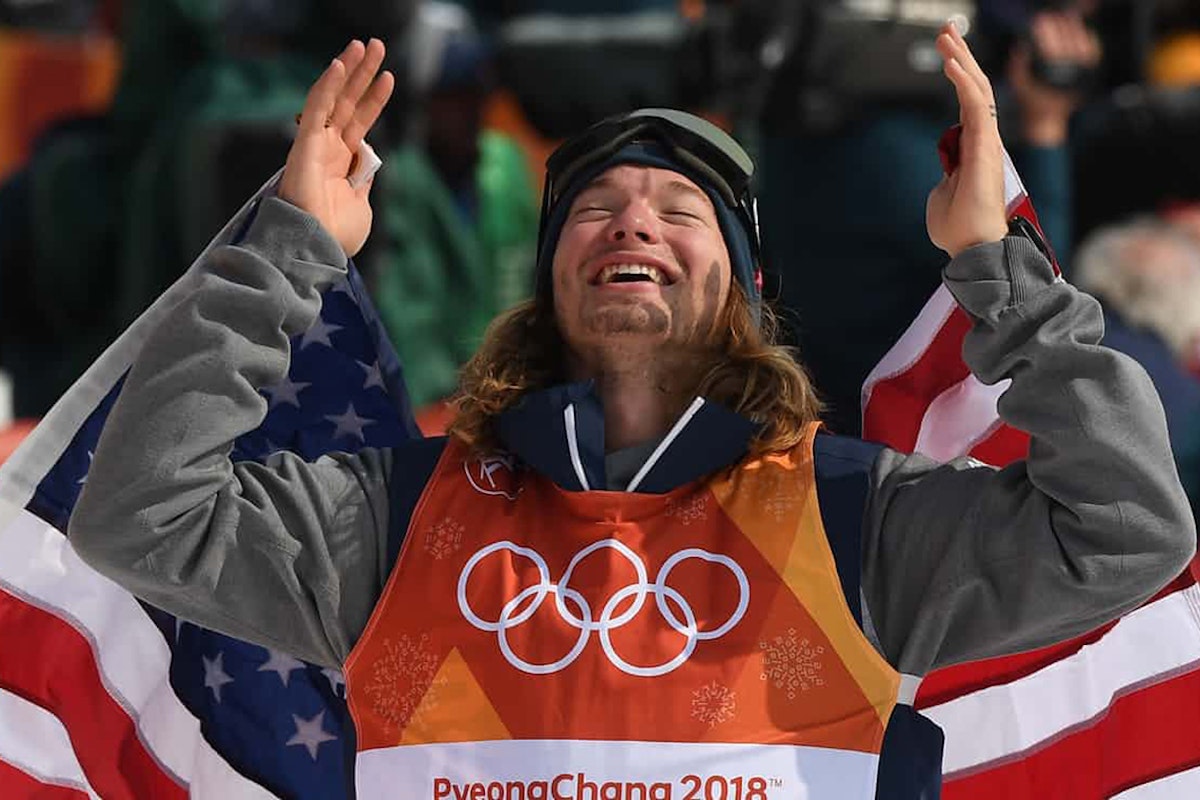
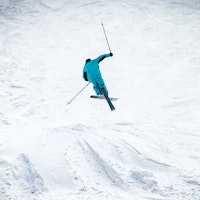
![[GIVEAWAY] Win a YoColorado X Coors Banquet & Liberty Skis Prize Package](https://www.datocms-assets.com/163516/1769630228-pastedgraphic-3.png?w=200&h=200&fit=crop)
